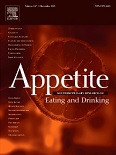Consumer conceptualisations of food-related wellbeing : an exploration of wellbeing-related terms in four industrialised countries
Dublin Core
Título
Tema
Abstract
Perceived (or subjective) wellbeing is regarded as key to understanding consumer food choices and the devel opment of strategies to promote desirable eating habits. Yet, in-depth understanding of the specific factors that contribute to people’s perceived wellbeing across cultures is lacking. These factors motivated the present research that used word associations to conduct an exploratory analysis of consumer conceptualisations of food related wellbeing (WB). Adults (n = 4945) living in the United Kingdom, Australia, Singapore or Germany, and speaking respectively, English or German, took part in the study. Health, pleasure, food quality, positive emo tions and social aspects of food consumption were the main associations with food-related wellbeing. Absence hereof was associated with unhealthiness, disgust, negative emotions and poor mental health. The differences in these main associations emphasised the importance of exploring wellbeing, as well as lack hereof. Not doing so leads to an incomplete understanding of this multidimensional construct. The research was conducted with four terms related to wellbeing (each in their positive and negative versions): ‘sense of wellbeing’ and ‘lack of wellbeing’, ‘feeling good’ and ‘feeling bad/unhappy’, ‘satisfied with life’ and ‘dissatisfied with life’ and ‘fulfilled in life’ and ‘unfulfilled in life’. Because these different terms gave rise to different wellbeing associations, re searchers in this area must choose their empirical approach with care. The terms ‘sense of wellbeing’ and ‘feeling good’ tended to more frequently give rise to health-related associations. Conversely, ‘satisfied with life’ and ‘fulfilled in life’ tended to more frequently give rise to positive spiritual and emotional associations of food related wellbeing. The main conceptualisations of food-related wellbeing were cross-culturally similar, but extension of the present research to other Asian countries was recommended based on several differences be tween Singaporean participants and those from other countries. In ethnically diverse countries like Singapore, further within-country investigations of different cultures will also have merit.
Fuente
Editor
Fecha
Derechos
Información sobre Derechos de Autor
(Por favor lea este aviso antes de abrir los documentos u objetos)
La legislación uruguaya protege el derecho de autor sobre toda creación literaria, científica o artística, tanto en lo que tiene que ver con sus derechos morales, como en lo referente a los derechos patrimoniales con sujeción a lo establecido por el derecho común y las siguientes leyes (LEY 9.739 DE 17 DE DICIEMBRE DE 1937 SOBRE PROPIEDAD LITERARIA Y ARTISTICA CON LAS MODIFICACIONES INTRODUCIDAS POR LA LEY DE DERECHO DE AUTOR Y DERECHOS CONEXOS No. 17.616 DE 10 DE ENERO DE 2003, LEY 17.805 DE 26 DE AGOSTO DE 2004, LEY 18.046 DE 24 DE OCTUBRE DE 2006 LEY 18.046 DE 24 DE OCTUBRE DE 2006)
ADVERTENCIA: La consulta de este documento queda condicionada a la aceptación de las siguientes condiciones de uso: Este documento es únicamente para usos privados enmarcados en actividades de investigación y docencia. No se autoriza su reproducción con fines de lucro. Esta reserva de derechos afecta tanto los datos del documento como a sus contenidos. En la utilización o cita de partes debe indicarse el nombre de la persona autora.Formato
Extent
Idioma
Tipo
Identificador
Document Item Type Metadata
Original Format
- Fecha de agregación
- December 12, 2022
- Colección
- Bibliografía Nacional Química
- Tipo de Elemento
- Document
- Etiquetas
- Alimentos, Asociación de palabras, Bienestar, Comporamiento del consumidor, Consumidores
- Citación
- Jaeger, Sara R., “Consumer conceptualisations of food-related wellbeing : an exploration of wellbeing-related terms in four industrialised countries,” RIQUIM - Repositorio Institucional de la Facultad de Química - UdelaR, accessed July 26, 2024, https://riquim.fq.edu.uy/items/show/6578.
- Archivos

